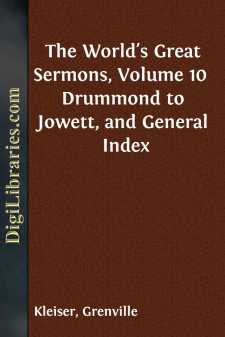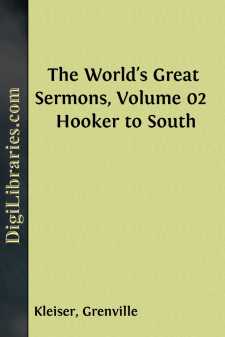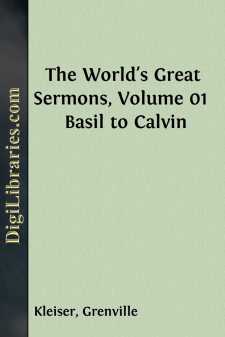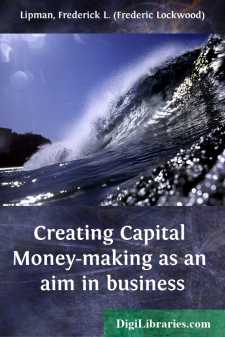Categories
- Antiques & Collectibles 13
- Architecture 36
- Art 48
- Bibles 22
- Biography & Autobiography 813
- Body, Mind & Spirit 142
- Business & Economics 28
- Children's Books 17
- Children's Fiction 14
- Computers 4
- Cooking 94
- Crafts & Hobbies 4
- Drama 346
- Education 46
- Family & Relationships 57
- Fiction 11829
- Games 19
- Gardening 17
- Health & Fitness 34
- History 1377
- House & Home 1
- Humor 147
- Juvenile Fiction 1873
- Juvenile Nonfiction 202
- Language Arts & Disciplines 88
- Law 16
- Literary Collections 686
- Literary Criticism 179
- Mathematics 13
- Medical 41
- Music 40
- Nature 179
- Non-Classifiable 1768
- Performing Arts 7
- Periodicals 1453
- Philosophy 64
- Photography 2
- Poetry 896
- Political Science 203
- Psychology 42
- Reference 154
- Religion 513
- Science 126
- Self-Help 84
- Social Science 81
- Sports & Recreation 34
- Study Aids 3
- Technology & Engineering 59
- Transportation 23
- Travel 463
- True Crime 29
The World's Great Sermons, Volume 10 Drummond to Jowett, and General Index
Description:
Excerpt
DRUMMOND
1851—1897
THE GREATEST THING IN THE WORLD[1]
[Footnote 1: Reprinted by permission of James Pott & Co.]
Tho I speak with the tongues of men and of angels, and have not love, &c.—I Cor. xiii.
Everyone has asked himself the great question of antiquity as of the modern world: What is the summum bonum—the supreme good? You have life before you. Once only you can live it. What is the noblest object of desire, the supreme gift to covet?
We have been accustomed to be told that the greatest thing in the religious world is faith. That great word has been the key-note for centuries of the popular religion; and we have easily learned to look upon it as the greatest thing in the world. Well, we are wrong. If we have been told that, we may miss the mark. I have taken you, in the chapter which I have just read, to Christianity at its source; and there we have seen, "The greatest of these is love." It is not an oversight. Paul was speaking of faith just a moment before. He says, "If I have all faith, so that I can remove mountains, and have not love, I am nothing." So far from forgetting, he deliberately contrasts them, "Now abideth faith, hope, love," and without a moment's hesitation the decision falls, "The greatest of these is love."
And it is not prejudice. A man is apt to recommend to others his own strong point. Love was not Paul's strong point. The observing student can detect a beautiful tenderness growing and ripening all through his character as Paul gets old; but the hand that wrote, "The greatest of these is love," when we meet it first, is stained with blood.
Nor is this letter to the Corinthians peculiar in singling out love as the summum bonum. The masterpieces of Christianity are agreed about it. Peter says, "Above all things have fervent love among yourselves." Above all things. And John goes further, "God is love." And you remember the profound remark which Paul makes elsewhere, "Love is the fulfilling of the law." Did you ever think what he meant by that? In those days men were working their passage to heaven by keeping the ten commandments, and the hundred and ten other commandments which they had manufactured out of them. Christ said, I will show you a more simple way. If you do one thing, you will do these hundred and ten things, without ever thinking about them. If you love, you will unconsciously fulfil the whole law. And you can readily see for yourselves how that must be so. Take any of the commandments. "Thou shalt have no other gods before me." If a man love God, you will not require to tell him that. Love is the fulfilling of that law. "Take not his name in vain." Would he ever dream of taking His name in vain if he loved Him? "Remember the Sabbath day to keep it holy." Would he not be too glad to have one day in seven to dedicate more exclusively to the object of his affection? Love would fulfil all these laws regarding God. And so, if he loved man, you would never think of telling him to honor his father and mother. He could not do anything else....


















